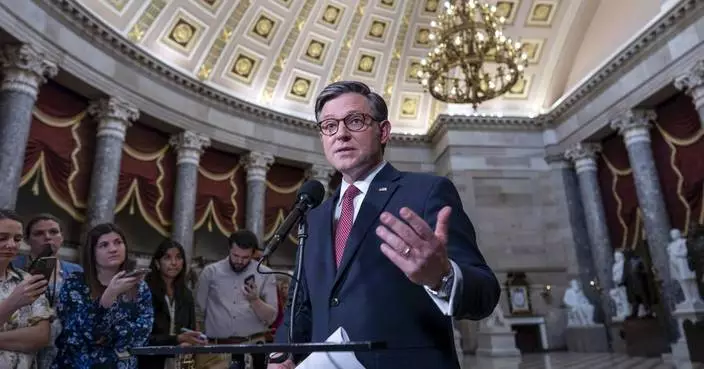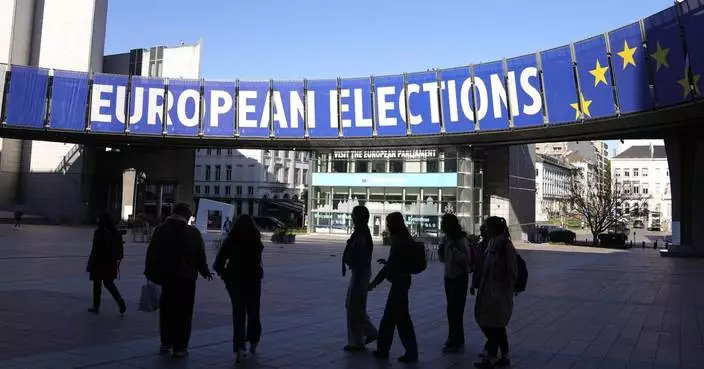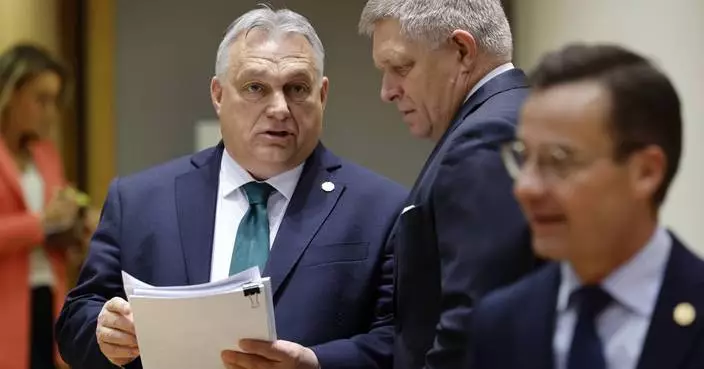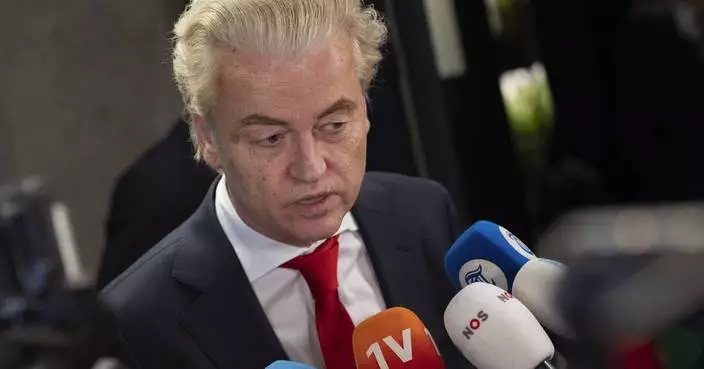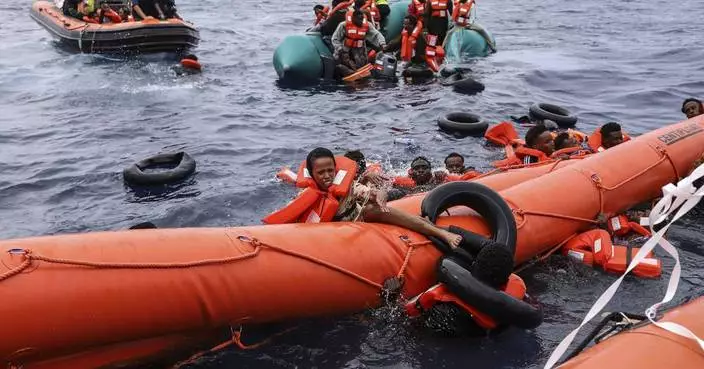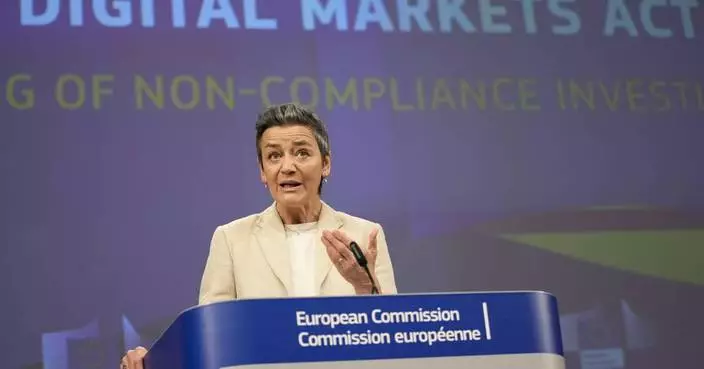Turkish President Recep Tayyip Erdogan said Friday his country is determined to destroy what he called a "terror corridor" in northern Syria — regardless of whether or not Turkey and the United States agree on the establishment of a so-called "safe zone" there.
U.S. and Turkish officials have been holding talks on creating a safe zone east of the Euphrates River to address Turkey's security concerns stemming from the presence of Syrian Kurdish fighters in the region. Turkey views Kurdish fighters — who have battled the Islamic State group alongside U.S. forces — as terrorists, allied with a Kurdish insurgency within Turkey.
Ankara wants a zone along the border with Syria cleared of the Kurdish fighters and claims such a zone would be safe for Syrians and allow some of the country's refugees to return.
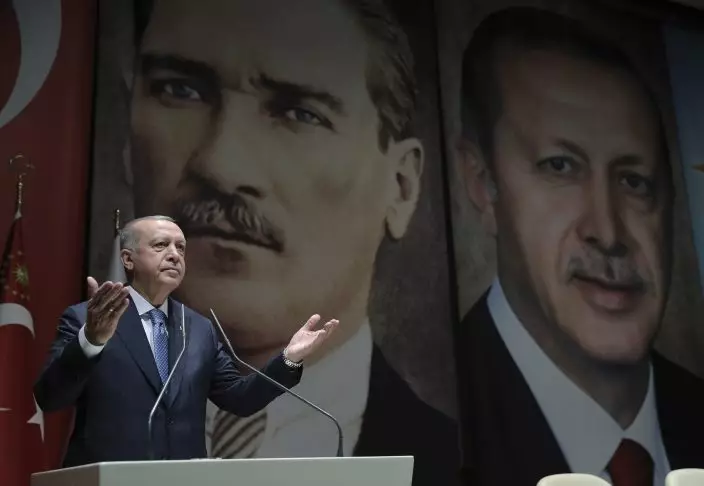
Turkey's President Recep Tayyip Erdogan addresses his ruling party members, in Ankara, Turkey, Friday, July 26, 2019. Erdogan says Turkey is determined to destroy what he called a "terror corridor" in northern Syrian regardless of whether or not Turkey and the United States agree on the establishment of a safe zone. Turkish and U.S. officials have been holding talks for a safe zone east of the river Euphrates to address Turkey's security concerns.(Presidential Press Service via AP, Pool)
Turkey has warned of a possible new offensive into Syria if an agreement on a safe zone is not reached, and has recently been sending reinforcements to its border area. Since 2016, Turkey has launched two cross-border offensives against IS and the Syrian Kurdish fighters.
In an apparent message to U.S.-allied Kurdish militiamen in Syria, Erdogan told party officials that "those who engage in bullying by putting their trust in foreign forces will tomorrow find themselves in the grave."
Marine Gen. Kenneth F. McKenzie, the U.S. Central Command chief, had visited Syria's Kurdish-held areas on Monday for the first time since he took his post in March. McKenzie met with the top Kurdish commander to discuss the safe zone.
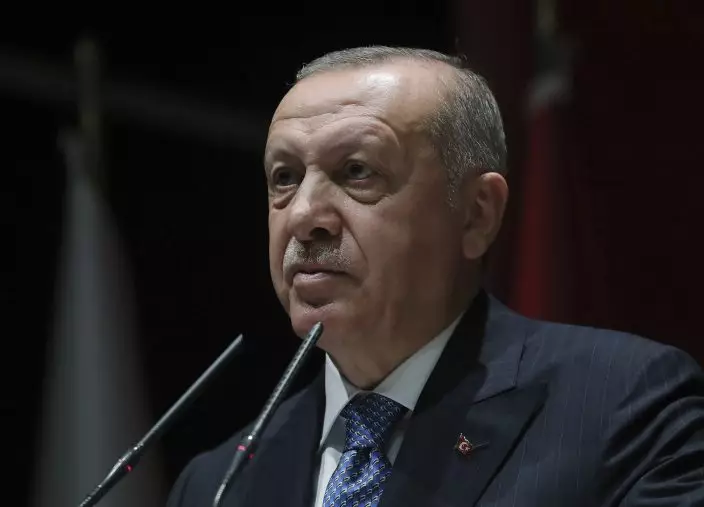
Turkey's President Recep Tayyip Erdogan addresses his ruling party members, in Ankara, Turkey, Friday, July 26, 2019. Erdogan says Turkey is determined to destroy what he called a "terror corridor" in northern Syrian regardless of whether or not Turkey and the United States agree on the establishment of a safe zone. Turkish and U.S. officials have been holding talks for a safe zone east of the river Euphrates to address Turkey's security concerns. (Presidential Press Service via AP, Pool)
Erdogan said a new Turkish incursion into Syria east of the Euphrates would cut off contact between Syria's Kurdish fighters and Iraq, where Turkey has been carrying out airstrikes targeting alleged Kurdish rebel hideouts.
In Syria, the Foreign Ministry condemned what it called as destructive U.S. interference in the country. It said U.S. involvement in Syria aims to prolong and complicate the crisis. A statement from an unnamed ministry official said Syria rejects any agreements with Turkey that blatantly violate its sovereignty.
Meanwhile, Erdogan also confirmed that Turkey had caught or killed all of the suspects behind the assassination of a Turkish diplomat last week in Iraq's semi-autonomous Kurdish region.
Turkish media reported Thursday that the military, acting on Turkish intelligence, targeted two vehicles carrying the alleged masterminds of the July 17 attack that killed Osman Kose at a restaurant in Irbil. The reports said the planners of the attack and their bodyguards were killed on July 18 and July 24.
Iraq's Kurdish officials said last weekend the lead suspect in the shooting was arrested. He was identified as a 27-year-old who hails from Turkey's predominantly Kurdish city of Diyarbakir.
"We caught all of those who martyred our consulate's employee," Erdogan said. "If any of them were missing, they were rendered ineffective in their dens through successful operations."
On Friday, Iraq's Kurdish security council released a video of purported confessions of six detained in connection with the diplomat's killing — three Kurds from Turkey and three from Iraq's Kurdistan region. They included the main suspect who said in the televised confessions the assassination was planned at a base in northern Iraq of the Kurdistan Workers' Party, Turkey's insurgent group, by a senior group leader.
The also video contained new footage of the assassination, the attackers' getaway from the scene and the arrest operation.
Associated Press writer Salar Salim in Irbil, Iraq, contributed to this report.
NICOSIA, Cyprus (AP) — The governments of eight European Union member states said Friday the situation in Syria should be re-evaluated to allow for the voluntary return of Syrian refugees back to their homeland.
In a joint statement, officials from Austria, the Czech Republic, Cyprus, Denmark, Greece, Italy, Malta and Poland said they agree on a re-assessment that would lead to “more effective ways of handling” Syrian refugees trying to reach European Union countries.
The eight countries, which held talks during a summit meeting in the Cypriot capital, said the situation in Syria has “considerably evolved,” even though complete political stability hasn't been achieved.
Cyprus has in recent months seen an upsurge of Syrian refugees reaching the island nation primarily from Lebanon aboard rickety boats.
Earlier this month, the EU announced a 1 billion euro ($1.06 billion) aid package for Lebanon aimed at boosting border controls to halt the flow of asylum seekers and migrants to Cyprus and Italy.
The eight countries said the EU should further boost support for Lebanon to "mitigate the risk of even greater flows from Lebanon to the EU.”
“Decisions as to who has the right to cross a member state’s borders, should be taken by the government of the relevant member state and not by criminal networks engaged in migrant smuggling and trafficking in human beings,” the joint statement said.
The call comes a day afte r 15 EU member countries publicly called for the bloc to boost partnerships with countries along migratory routes in hopes of heading off attempts to reach EU countries.
The countries said that while they “fully embrace” the need to support Syrian refugees in line with international law, they hoped their talks could open a wider debate within the 27-member bloc on the process of granting the migrants international protection.
“What European citizens want from us ... are solutions, practical, realistic solutions that can be implemented,” said Greek Migration Minister Dimitris Kairidis.
Cypriot Interior Minister Constantinos Ioannou said the United Nations' refugee agency has already “established lines of communication” with Syrian authorities regarding possible voluntary returns in line with international law.
The Cypriot minister said returns would initially be on a voluntary basis, but that could develop into forced returns at a later stage. Much more needs to be done for that to happen because the government of Syrian President Bashar Assad isn't recognized by the EU, he said.
In Lebanon, where anti-refugee sentiment has been surging recently, more than 300 Syrian refugees returned to Syria in a convoy earlier this week.
Lebanese officials have long urged the international community to either resettle the refugees in other countries or help them return to Syria.

Cyprus' interior minister Konstantinos Ioannou, right, talks to the media during a press conference as his counterparts Austria's Gerhard Karner, left, and Czech's Vít Rakusan stand by during the Ministerial Summit Migration and Syria Dynamics in capital Nicosia, Cyprus, Friday, May 17, 2024. The governments of eight European Union member states say the situation inside Syria should be re-evaluated to allow for voluntary returns of Syrian refugees back to their homeland. (AP Photo/Petros Karadjias)

Cyprus' interior minister Konstantinos Ioannou, second right, talks to the media during a press conference as his counterparts Austria's Gerhard Karner, left, Czech's Vít Rakusan, second left, and Greece's Minister Of Immigration and Asylum Dimitris Kairides, right, stand by, during the Ministerial Summit Migration and Syria Dynamics in capital Nicosia, Cyprus, Friday, May 17, 2024. The governments of eight European Union member states say the situation inside Syria should be re-evaluated to allow for voluntary returns of Syrian refugees back to their homeland. (AP Photo/Petros Karadjias)
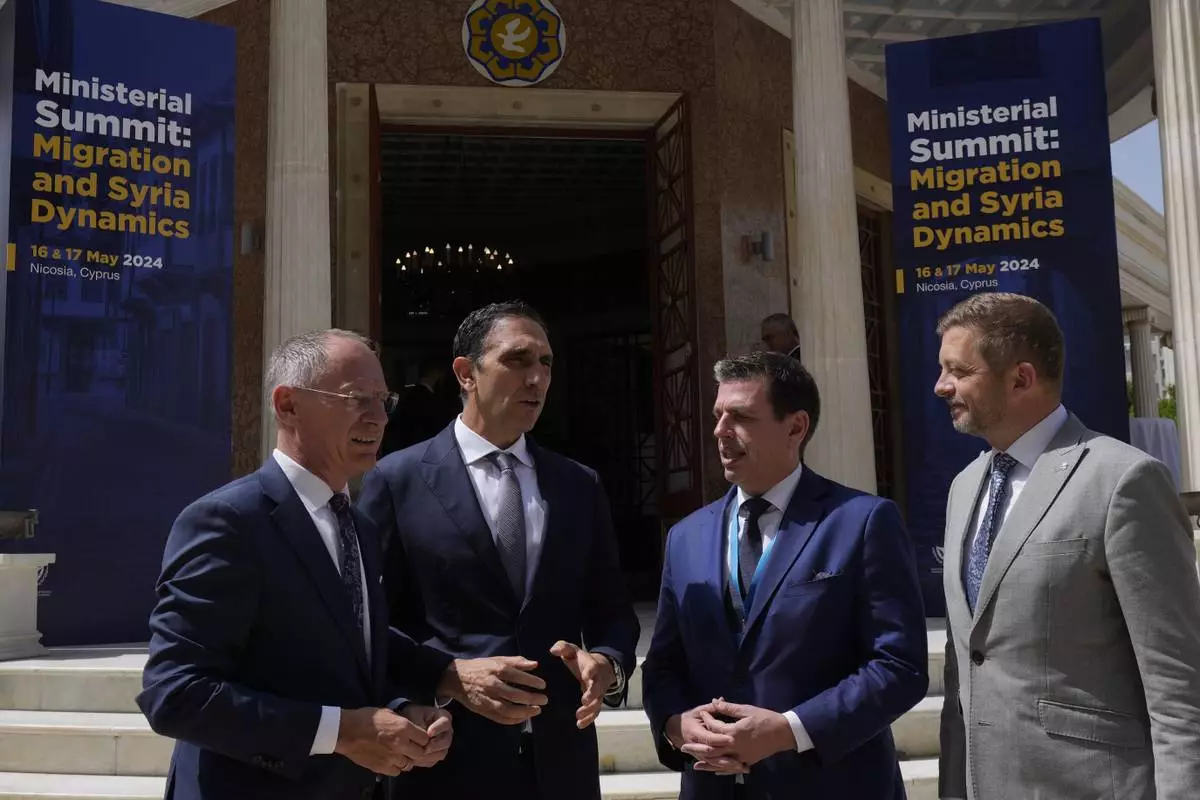
Cyprus' interior minister Konstantinos Ioannou, second left, talks with his counterparts Austria's Gerhard Karner, left, Czech's Vít Rakusan, right, and Greece's Minister Of Immigration and Asylum Dimitris Kairides, second right, stand by, during the Ministerial Summit Migration and Syria Dynamics in capital Nicosia, Cyprus, Friday, May 17, 2024. The governments of eight European Union member states say the situation inside Syria should be re-evaluated to allow for voluntary returns of Syrian refugees back to their homeland. (AP Photo/Petros Karadjias)
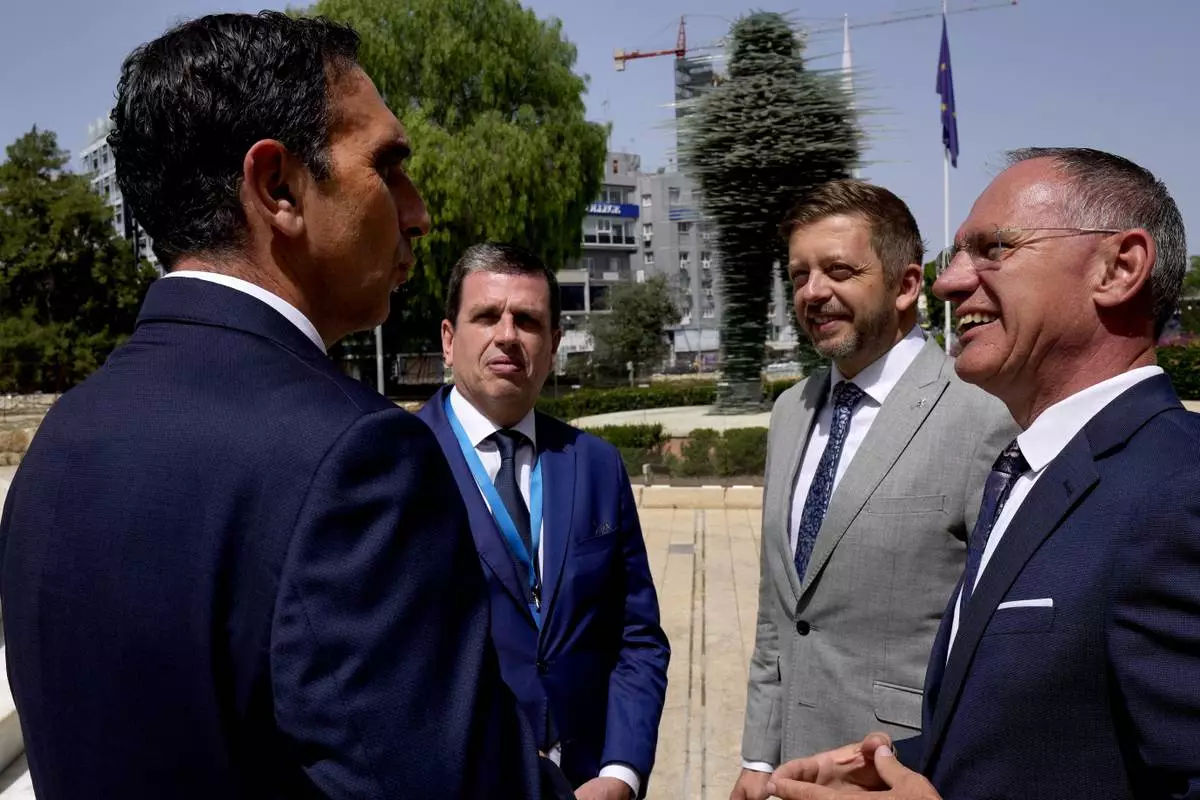
Cyprus' interior minister Konstantinos Ioannou, left, talks with his counterparts Austria's Gerhard Karner, right, Czech's Vít Rakusan, second right, and Greece's Minister Of Immigration and Asylum Dimitris Kairides, second left, during the Ministerial Summit Migration and Syria Dynamics in capital Nicosia, Cyprus, Friday, May 17, 2024. The governments of eight European Union member states say the situation inside Syria should be re-evaluated to allow for voluntary returns of Syrian refugees back to their homeland. (AP Photo/Petros Karadjias)

Cyprus' interior minister Konstantinos Ioannou, second left, talks with his counterparts Austria's Gerhard Karner, left, Czech's Vít Rakusan, right, and Greece's Minister Of Immigration and Asylum Dimitris Kairides, second right, during the Ministerial Summit Migration and Syria Dynamics in capital Nicosia, Cyprus, Friday, May 17, 2024. The governments of eight European Union member states say the situation inside Syria should be re-evaluated to allow for voluntary returns of Syrian refugees back to their homeland. (AP Photo/Petros Karadjias)










